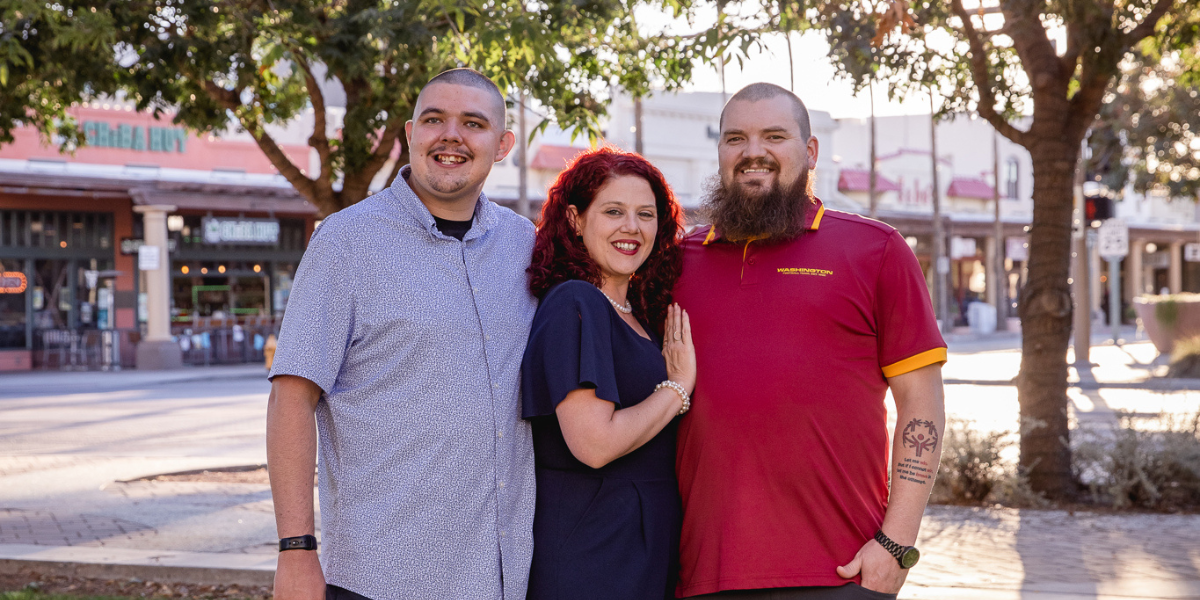For over a decade, Amanda Steele, a speech-language pathology assistant, inherently knew she was different and had always suspected autism. Yet, despite being well-connected in the autism community with a 24-year-old low-verbal autistic son, she never pursued a diagnosis for herself.
In 2021, Amanda realized she needed support. She struggled with unhealthy relationships and sensory challenges that interfered with her daily life. Finally, she gathered the courage to seek a diagnostic evaluation.
“It was the best thing I ever did,” Amanda, 41, shared. “I was excited to learn for both myself and my clients. This opportunity allowed me to not only build on my skills but also find new ways to connect with my neurodivergent clients.”
Shortly after her diagnosis, Amanda learned about a research study focused on supporting adults with autism. The Strengthening Skills Study, funded by the Department of Defense Autism Research Program, was designed to teach participants strategies to support brain functioning, strengthen relationships, and mindfulness-based strategies to support mental health.
The study was a result of an ongoing collaboration that SARRC has with Blair Braden, Ph.D., director of the Autism and Brain Aging Lab at Arizona State University, and Leslie Baxter, Ph.D., clinical neuropsychologist at Mayo Clinic Arizona, says SARRC’s Director of Research Nicole Matthews, Ph.D.
“There is so little that we, as a research community, know about autism and aging,” Dr. Matthews says. “As we progressed with the study, many middle-aged and older adults we evaluated inquired about support programs. Just like there was very little research on adults beyond young adulthood, no evidence-based programs existed to support cognitive aging or other commonly reported challenges in middle-aged and older adults on the spectrum.”
For 16 weeks, Amanda participated in the Strengthening Skills program through weekly Zoom meetings with other autistic adults between the ages of 21 and 73. The group discussed strategies for time management and habit formation, developing and maintaining healthy interpersonal and professional relationships, and mindfulness to support mental health. The program was designed so that these strategies could be individualized and applied to each adult’s unique goals and priorities.
The study reported overall improvements in participants’ conceptual skills like planning and organization, social relationships, and psychological well-being. However, for Amanda, the most significant impact came from the program’s strategies that empowered her to pursue a major goal: a seat on her local school district’s governing board.
“The time management techniques, especially with creating a visual calendar, were a game-changer,” Amanda recalls. “It helped me plan my days more effectively, allowing me to serve on the Tempe Union High School District Governing Board while also co-founding EPIC Disability Advocacy, maintaining a caseload of clients, and ensuring I spend time with my family each day.”
Two years after her successful campaign, Amanda has made significant contributions to improving special education within the district. She is the co-creator of EmpowerU, a leadership program for neurodivergent individuals, and has shifted her client caseload to serving only teens and adults. With the help of the strategies she learned in the program, Amanda is successfully balancing her many contributions to the community while continuing to make time for her family.
Learn more about SARRC’s research on autism and brain aging and the Strengthening Skills program. If you are or know of an adult with autism interested in participating in research as it relates to aging, please contact SARRC’s collaborators at Arizona State University’s Autism and Brain Aging Lab at [email protected].

